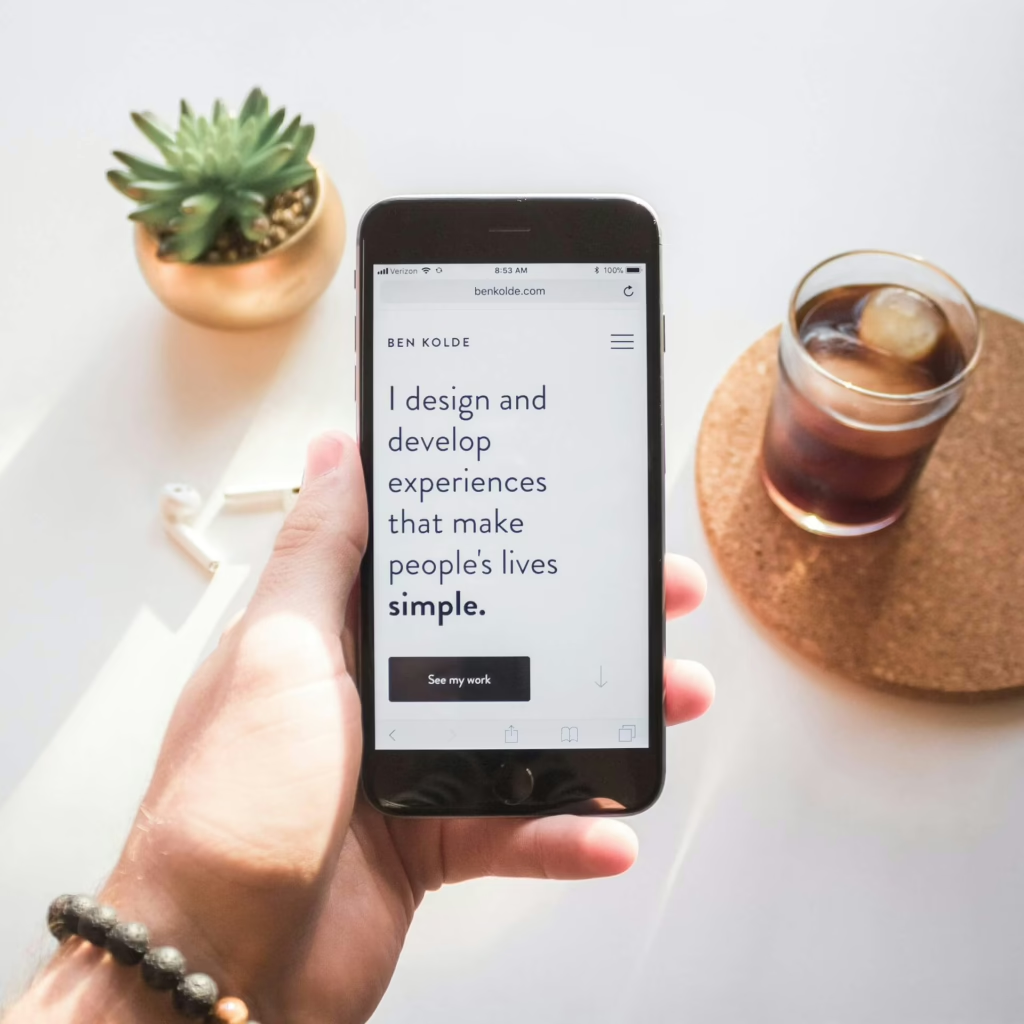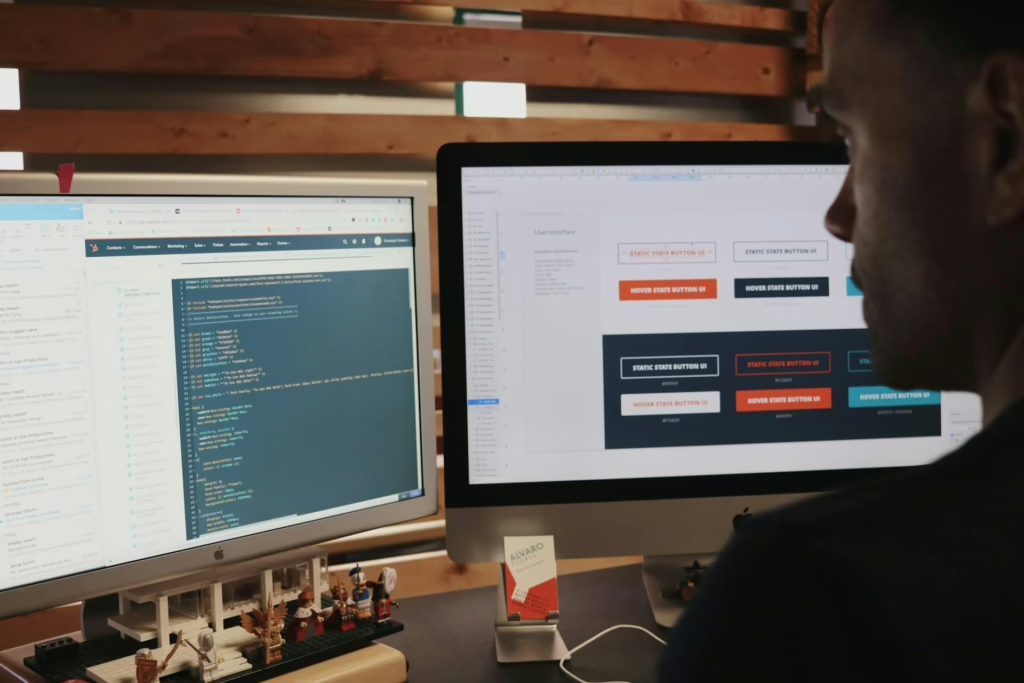When it comes to building a website, finding the right web designer can feel like searching for a needle in a haystack. There are so many options out there, and not all of them are the right fit for your business. Whether you’re launching a new project, rebranding, or just want to improve your online presence, the importance of having a solid website cannot be overstated.
A great website can do wonders for your business, from driving traffic to improving user engagement and even boosting sales. But finding the right designer? That’s where things get tricky.
So, how to find a good web designer who not only meets your needs but also keeps you on track with the evolving digital landscape of 2025? Let’s break it down in simple terms to help you choose the right person or team for the job.

1. Understand Your Needs and Goals
Before you dive into the world of web designers, take a step back and think about what you actually need from your website. This is the first and most important step in the process. Understanding your own business goals will give you a clear direction when searching for the right designer.
Assess Your Business Goals
Think about what role you want your website to play for your business. Are you running an e-commerce store that needs to handle transactions seamlessly? Or perhaps you’re creating a blog to share your expertise with the world? Maybe you’re a service-based business looking for a lead-generating machine. Your web designer will need to understand your goals in order to build a site that supports them.
Also read: How to Find a UI/UX Designer for an eCommerce Website
Identify Your Design Preferences
It’s easy to get caught up in the aesthetics, but design isn’t just about looking pretty. It’s about creating an experience that makes sense for your audience. Start by identifying the style you want your website to reflect. Do you want it to be modern and minimalistic, or perhaps bold and interactive? Do you want lots of animations, or are you more about clean lines and easy navigation? The clearer you are about your vision, the better your web designer will be able to bring it to life.
2. Research the Designer’s Experience and Portfolio
Now that you know what you need, it’s time to start looking for a designer. One of the first things to do is check their portfolio. This is like their digital resume and can give you a pretty good sense of their skills and design style.
Look for a Strong Portfolio
A good web designer should have a portfolio that showcases their best work. But don’t just look at the aesthetics—look deeper. Does the work showcase a variety of different types of websites? This could include e-commerce sites, blogs, landing pages, and corporate sites. A diverse portfolio shows that the designer can adapt to different business needs and styles.
Industry-Specific Experience
It can be helpful if a designer has experience working within your industry, but it’s not a dealbreaker. If they’ve worked with other businesses similar to yours, they’ll have an understanding of what works and what doesn’t. For instance, if you’re running an online store, someone who’s built e-commerce sites before will be familiar with the ins and outs of product pages, checkout processes, and security features. However, a designer with strong fundamentals in web design can adapt to nearly any industry with a little research and creativity.
Read Client Testimonials and Reviews
A designer’s portfolio can only tell you a lot. Client testimonials and reviews will give you insight into how they work with clients. Positive feedback is a good sign that the designer is reliable and professional. Check platforms like Google Reviews, Clutch, or even LinkedIn to see what past clients have to say.

3. Check Technical Skills and Tools
While it’s easy to get lost in the visual side of design, don’t forget about the technical skills your designer needs to have. A pretty site is only half the battle; it also needs to perform well, be easy to navigate, and look great on any device.
Responsive Design Expertise
In today’s world, if your website isn’t mobile-friendly, you’re already behind. Over half of web traffic comes from mobile devices, so a responsive design is crucial. Your designer should be able to build a site that looks great whether it’s viewed on a desktop, tablet or smartphone.
Familiarity with 2025 Design Trends and Technology
Web design evolves fast, and staying current is essential. In 2025, expect to see even more advanced animations, immersive experiences, and integrations with artificial intelligence. Your designer should be up-to-date with these trends, as they can enhance user experience and make your site stand out. Look for someone who is comfortable using the latest design tools like Figma, Sketch, and Webflow, and has a solid understanding of how to create experiences that match future trends.
Relevant article: B2B Web Design Trends for 2025: What You Need to Know
SEO and Performance Optimization
No one wants a slow-loading website, and search engine optimization (SEO) is more important than ever. A good web designer should be able to optimize your site for speed and make sure it ranks well on search engines like Google. This means making sure images are compressed, scripts are clean, and the structure of the site is set up to help it show up in relevant searches.

4. Communication and Collaboration Skills
The ability to communicate and collaborate is often overlooked, but it’s critical to a successful web design project. Your designer needs to understand your vision, give you feedback, and, at times, be a problem-solver.
Clear and Consistent Communication
Web design is a process that requires ongoing communication. You’ll want a designer who’s responsive, listens to your feedback, and can explain things in a way that makes sense to you. Whether it’s through emails, video calls, or project management tools, having clear communication throughout the project is key to staying on track.
Collaboration and Feedback Handling
It’s important to find a designer who is open to your ideas but also able to give valuable suggestions. Collaboration means the designer is willing to work with you, understand your needs, and come up with solutions together. Be open to their ideas, as a professional web designer will bring a level of expertise that you might not have thought of.
Project Management and Deadlines
Web projects often involve multiple moving parts: design, content, development, testing, and launch. A good designer should be able to manage the project effectively and meet deadlines. Ask about their project management process. Do they use tools like Trello or Asana to keep everything organized? Make sure they’re realistic about timelines to avoid delays.
5. Budget and Pricing Transparency
When it comes to budgeting for a website, don’t go for the cheapest option just because it’s tempting. While you don’t need to break the bank, a solid website design is an investment.
Get Clear About Pricing Upfront
Pricing can vary widely depending on the scope of the project and the designer’s experience. Some designers charge by the hour, while others offer fixed prices for specific types of websites. Make sure you understand how they structure their pricing and ask for a detailed breakdown of costs. Be transparent about your budget from the start to avoid any misunderstandings.
Avoid Hidden Fees
Before you sign anything, ask about any potential additional costs. Some designers charge extra for revisions, maintenance, or ongoing support after the website launches. Get all the details earlier on so there are no surprises later on.
6. Ask the Right Questions During the Interview
When you’re interviewing potential designers, make sure to ask the right questions to assess their expertise and approach.
Prepare Questions to Gauge Expertise
Here are a few questions to consider:
- Can you show some websites you’ve built that are similar to what I need?
- How do you approach web accessibility, and how do you make sure your designs are inclusive?
- What steps do you take to optimize a website’s performance?
- How do you stay up-to-date with the latest design trends and technologies?
Evaluate Their Understanding of Your Project
Listen carefully to how they answer these questions. A good designer should be able to explain their process clearly and demonstrate that they understand your project’s needs. If they can’t articulate their approach or sound unsure, it may be a red flag.
Also read: When to Redesign Your Website? Essential Tips for 2025
7. Make Sure They Offer Post-Launch Support
Launching your site is just the beginning. After the launch, you’ll likely need updates, maintenance, and support.
Ongoing Maintenance and Updates
Ask your designer if they offer post-launch support. Will they be available for troubleshooting or making changes after the site goes live? Some designers offer maintenance packages that include things like regular updates, security patches, and content tweaks.
Training and Knowledge Transfer
You may also need training to manage your website yourself. Does the designer provide training sessions on how to update content or add new features? It’s a good idea to ask about this in advance to ensure you’re not left in the dark once the site is live.

8. Trust Your Instincts and Set Realistic Expectations
Ultimately, the decision to hire a designer comes down to trust. Do you feel comfortable with them? Do you believe they understand your vision?
Set Clear Expectations from the Start
Once you’ve selected a designer, set clear expectations. Outline the scope of the project, timelines, and deliverables. This will ensure that everyone is on the same page and the project runs smoothly.
Also read: Top UI/UX Design Agencies in the US for Functional Design | 2025
Conclusion
Finding a good web designer doesn’t have to be overwhelming if you approach it the right way. By understanding your needs, doing thorough research, and asking the right questions, you can find a designer who will bring your vision to life. Keep in mind that the best web designers are those who stay up-to-date with the latest trends, understand your business goals, and offer transparent pricing and communication.
Ready to Get Started?
If you’re ready to create a website that elevates your business, Hapy Design is here to help. With our team of experienced designers, we’ll work with you every step of the way to ensure your website is everything you need and more.
Let’s create something amazing together.
